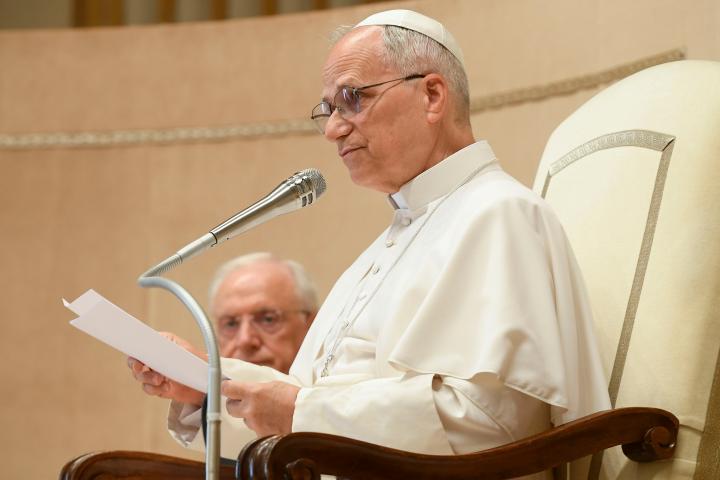Pope Leo XIV has declared there must be no tolerance within the Catholic Church for any form of abuse, whether sexual, spiritual, or an abuse of authority, as he calls for transparent processes and a robust culture of prevention across the global Church.
In his first public statement on the long-running clergy sex abuse crisis, the newly elected pontiff addressed a message to Peruvian journalist Paola Ugaz, whose investigative work helped expose one of Latin America’s most notorious Catholic scandals.
The message, read aloud on Friday evening during a stage performance in Lima based on Ugaz’s reporting, centred on the case of the Sodalitium Christianae Vitae (SCV), a controversial Catholic movement founded in Peru in 1971. The group has faced years of allegations involving spiritual manipulation, sexual abuse, and financial corruption.
“It is urgent to root in the whole Church a culture of prevention that does not tolerate any form of abuse, neither of power or authority, nor abuse of conscience, spiritual or sexual abuse,” Leo said. “This culture will only be authentic if it is born of active vigilance, of transparent processes and sincere listening to those who have been hurt. For this, we need journalists.”
Leo XIV is no stranger to the Sodalitium case. Before his papacy, then-Bishop Robert Prevost served in Peru for two decades as a missionary priest and bishop. He was deeply involved in supporting survivors and was the Peruvian bishops’ lead figure for abuse victims, helping several reach financial settlements with the group.
Following his transfer to the Vatican by Pope Francis in 2023, Prevost played a key role in dismantling the Sodalitium. This included the resignation of a senior bishop within the organisation and, ultimately, the suppression of the group earlier this year, shortly before Pope Francis’s death.
Pope Leo XIV faces the complex task of overseeing complete dissolution of Sodalitium
Now, as Pope, Leo faces the complex task of overseeing the complete dissolution of the Sodalitium and the redistribution of its considerable assets. His message was delivered on his behalf by Vatican envoy Monsignor Jordi Bertomeu, who stood alongside Ugaz on stage in a powerful symbolic moment.
Leo also used the occasion to issue a stirring defence of press freedom, praising journalists who, he said, demonstrate courage by holding power to account. “A free press is a common good that cannot be renounced,” he wrote, urging public authorities to protect journalists from retaliation.
Ugaz and fellow investigative reporter Pedro Salinas, both of whom have faced years of legal harassment from Sodalitium members and allies, have publicly praised Leo for his bold stance on the scandal and his unwavering support for survivors and truth-tellers.
The abuse dossier remains one of the most daunting challenges of Leo’s early papacy, especially as survivors press him to go further than his predecessor in implementing a zero-tolerance policy, including in cases where victims were adults, and the abuse less easily categorised but no less devastating.



